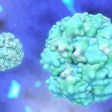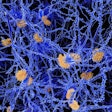
Oni, an Oxford University spin-out company, on Tuesday announced a research collaboration with the University of Pennsylvania in which Oni's Nanoimager single-molecule imaging platform will be used to guide the development of chimeric antigen T cell (CAR-T) therapies.
Nanoimager’s super-resolution microscopy will allow researchers to visualize living cells and observe how single molecules interact, helping to identify predictive CAR-T biomarkers and characteristics related to treatment safety and efficacy with the ultimate goal of improving patient outcomes with CAR-T therapy.
The University of Pennsylvania is a pioneer in CAR-T research, having developed the first CAR-T therapy approved by the U.S. Food and Drug Administration (FDA).
At the University of Pennsylvania’s Abramson Cancer Center, a team led by Dr. Marco Ruella studies resistance to CAR-T therapy and patient outcomes while developing the next generation of CAR-T treatments.
“This important collaboration with the University of Pennsylvania and Dr. Ruella using our Nanoimager technology will leverage super-resolution imaging to help guide development of better CAR-T therapies and hopefully positively impact patients’ lives in the future,” Bo Jing, CEO of Oni, said in a statement. “The precise data obtained from viewing living cells as they interact and the light it sheds on disease mechanisms allow enormous strides to be made in the design of novel therapeutics and diagnostics."



















